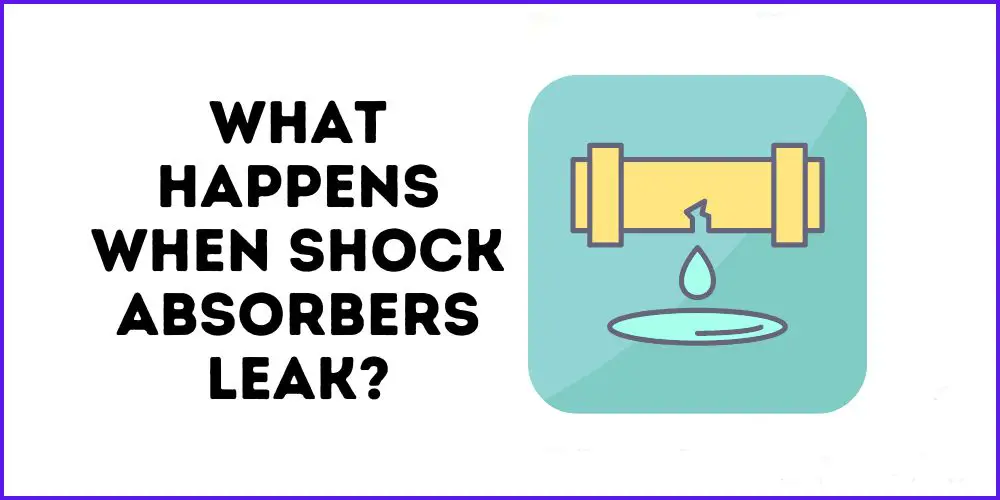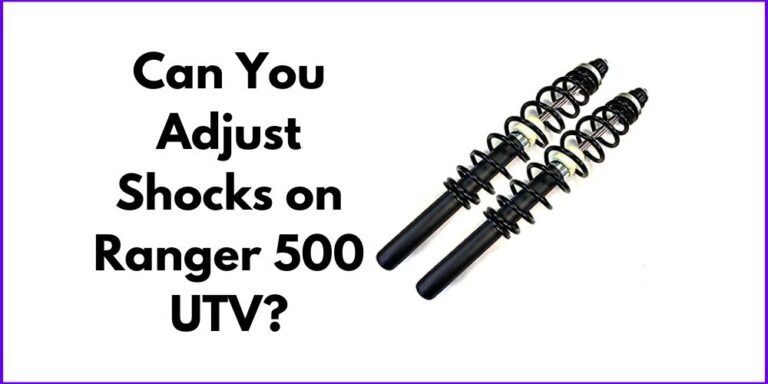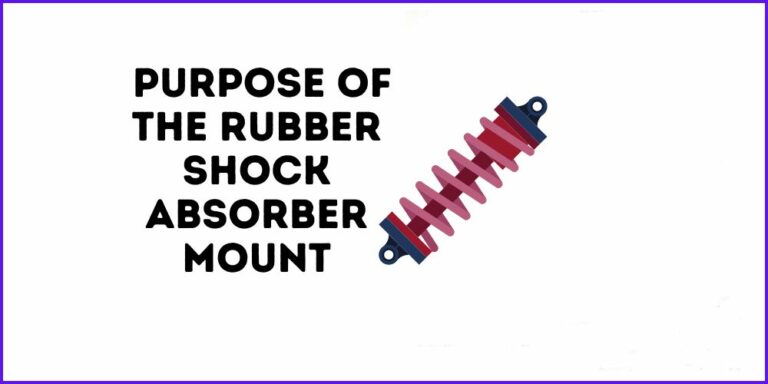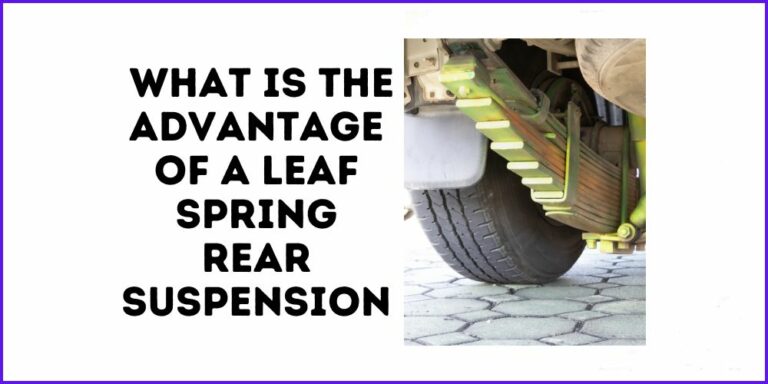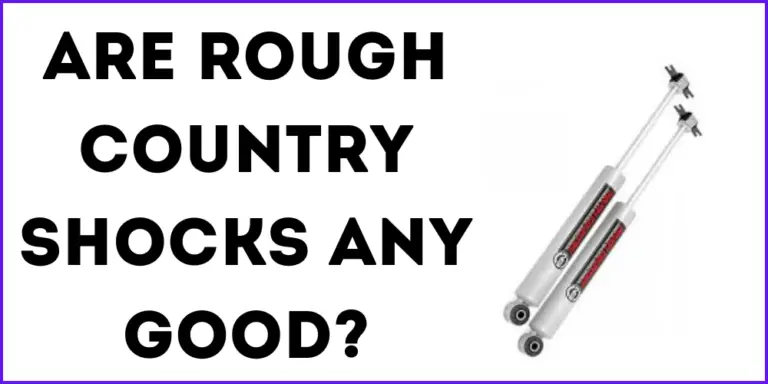Shock absorbers are an integral part of any vehicle’s suspension system, and their primary purpose is to ensure a smooth and comfortable ride. Without them, driving would be a much more jarring experience, with every bump and jolt in the road transmitted directly to the driver’s body. Unfortunately, shock absorbers can sometimes leak, leading to a range of problems that can severely degrade your driving experience.
In this blog post, we’ll explore the various causes of shock absorber leaks, their effects on a vehicle’s performance, and what can be done to repair the issue. We’ll also examine how investing in a high-quality set of shock absorbers can help to avoid these problems. So, if you’re concerned about the condition of your shock absorbers, let’s dig deep…
What Happens When Shock Absorbers Leak?
When shock absorbers leak, the fluid inside the unit is no longer contained within the sealed chamber, causing the piston to move in extreme ways. This can have a significant impact on the handling and stability of your vehicle.
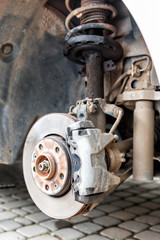
One of the most noticeable symptoms of a leaking shock absorber is reduced ride comfort. The vehicle may feel bouncier and less stable, making it difficult to drive smoothly. Additionally, you may notice uneven tire wear, as the leaking fluid can cause the tires to wear unevenly.
Another common symptom of a leaking shock absorber is difficulty steering. The loose fluid inside the unit can cause the steering to feel loose or unresponsive, making it harder to control the vehicle. This can be particularly dangerous at high speeds or when making sudden turns.
Leaking shock absorbers can also cause the vehicle to sway or lurch forward when braking. This is because the loose fluid inside the unit can cause the brakes to become less effective, making it harder to stop the vehicle in a timely manner.
It’s important to note that leaking shock absorbers are not only uncomfortable to drive with but also dangerous. If you suspect that your shock absorbers are leaking, it is best to have them checked by a professional mechanic as soon as possible to avoid any potential safety hazards.
How do you know if your shock absorber is leaking?
There are several ways to determine if your shock absorber is leaking. Some of the most common methods include:
- Visual inspection: Look for any visible signs of leaks or damage from the shock absorber, such as oil or fluid seeping out of the unit.
- Bounce test: Push down on the corner of your car. If it continues to bounce more than two or three times, it may indicate that the shock absorber is not functioning properly.
- Suspension check: While the car is parked, check the level of the car. A sagging corner of the vehicle can be an indication that one of the shock absorbers is leaking.
- Test drive: Take the vehicle for a test drive, and pay attention to the ride comfort and handling. If the car feels bouncy, sways excessively, or is difficult to steer, it may be a sign of a leaking shock absorber.
- Use of specialized tools: A pressure gauge can be used to check the internal pressure of the shock absorber. If the pressure is low, it may indicate a leak.
It’s important to note that if you suspect a leaking shock absorber, it is best to have it checked by a professional mechanic as soon as possible to avoid any potential safety hazards.
What are the Causes of Leaking Shock Absorbers?
There are several causes of leaking shock absorbers, including:
- Age and wear and tear: Shock absorbers are exposed to a lot of stress and movement, and over time, the seals can weaken and begin to leak. As the vehicle ages, the shock absorbers become less effective and may need to be replaced.
- Exposure to harsh elements: Exposure to salt, water, and other harsh elements can cause the seals on the shock absorbers to degrade, leading to leaks. This is particularly common in areas with harsh winters or coastal environments.
- Impact damage: Impact damage from accidents or driving over rough terrain can cause the shock absorbers to leak. A shock absorber may be leaking due to a puncture or a crack in the case.
- Manufacturing defects: In rare cases, shock absorbers may be defective from the factory, and may leak due to a manufacturing defect. In such cases, the manufacturer will typically replace the defective unit under warranty.
It’s important to note that the most common cause of leaking shock absorbers is age and wear and tear. Regular maintenance, inspection, and replacement of worn parts can help to extend the life of your shock absorbers and keep you safe on the road.
A Quick Fix, Repairs, or Replacement
When it comes to repairing or replacing leaking shock absorbers, there are a few options available. These include:
Temporary fixes: In some cases, a leaking shock absorber can be temporarily fixed by adding oil to the unit. This can help to restore the internal pressure and seal the leak, but it is only a temporary fix.
Or,
Complete replacement: The most effective way to fix a leaking shock absorber is to replace it entirely. This will ensure that the unit is functioning properly and is able to provide the necessary support and stability for the vehicle.
FAQs
Is it OK to drive with leaking shocks?
No, it is not safe to drive without leaking shocks. Leaking shocks can compromise the handling and stability of your vehicle, making it difficult to control and increasing the risk of accidents.
How serious is a leaking shock absorber?
A leaking shock absorber can be a serious problem. It can affect the handling and stability of the vehicle, making it difficult to control, and can cause uneven tire wear, reduce ride comfort and increase the risk of accidents.
Can leaking shock absorbers be repaired?
In some cases, a leaking shock absorber can be temporarily fixed by adding oil to the unit. However, the most effective way to fix a leaking shock absorber is to replace it entirely.
What does a leaking shock absorber sound like?
A leaking shock absorber may produce a clunking or knocking sound when hitting bumps, caused by metal-to-metal contact when the shock or strut bottoms out. Worn shock or strut mounting components could also cause it.
Finally
In conclusion, properly maintaining your shock absorbers is crucial for the overall performance and safety of your vehicle. Leaking shock absorbers can cause a range of problems, from reduced ride comfort to difficulty steering and increased risk of accidents.
It is never safe to drive with leaking shock absorbers, as it can compromise the handling and stability of the vehicle. If you suspect that your shock absorbers are leaking, it is important to have them checked by a professional mechanic as soon as possible to avoid any potential safety hazards.

